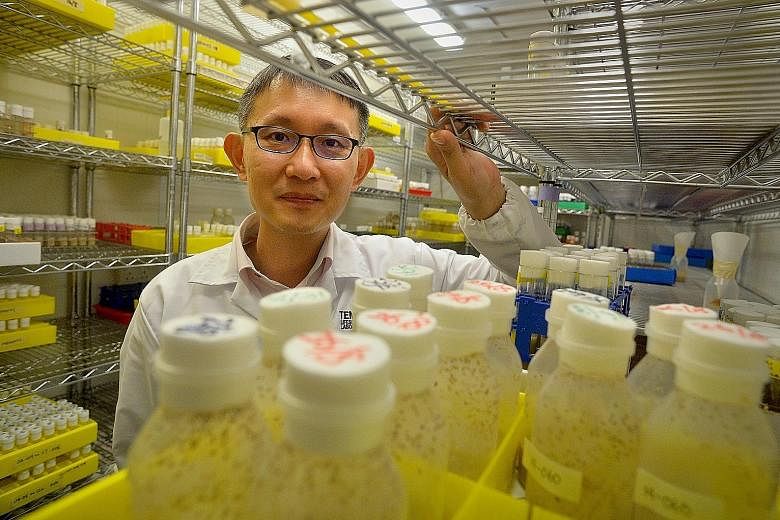The secret to a long, healthy life could lie in a gene that controls DNA, a study by local researchers suggests.
Their study on fruit flies found that this gene, which determines whether certain portions of DNA are turned on or off, is at reduced levels in flies that are older.
And when the scientists artificially increased the level of the gene in the fruit flies, the ageing process appeared to be reversed, with the insects behaving like they were younger.
For their research, the team studied around 200 fruit flies, which typically live for 50 to 70 days, and their movement, which they found became progressively slower as they aged, starting from when they turned 20 days old.
Using the speed at which they climbed a 15cm cylinder as a gauge for mobility and thus youthfulness, the scientists then compared the distance covered in six seconds by normal flies and flies of the same age that had increased levels of the gene.
They found that the flies with heightened levels of the gene generally moved faster.
Dr Ong Chin Tong, principal investigator of the study, said that the finding could have implications for humans, in whom the gene is also found. Fruit flies are also highly similar to humans in various aspects such as DNA sequence, metabolic pathways and mechanisms that control the activation of genes, he said.
Dr Ong, from Temasek Life Sciences Laboratory, hopes the finding could one day help to slow the ravages of time.
"Our idea is that if we can delay the onset of ageing, maybe we can push everything back to a later stage. If we start ageing later, then we will also get the undesirable effects of ageing later in our lives," he said.
Ageing refers to the progressive decline of cell function which causes the body to be more vulnerable to age-related diseases like cancer and dementia.
"The chance of getting a disease between a young and an old person is the same. The reason why old people are more susceptible is that their bodies and immune systems have declined," noted Dr Ong.
He said the next step would be to find the mechanism that causes the gene level to decline.
"The gene controls DNA but it starts to disappear as early as Day 20 in fruit flies. It makes no sense to us," he said.
Finding the mechanism will also allow the team to find a way to block the pathway and potentially prevent the gene from declining.
The team is discussing potential collaboration with hospitals to study changes in the level of the gene in human blood samples.

